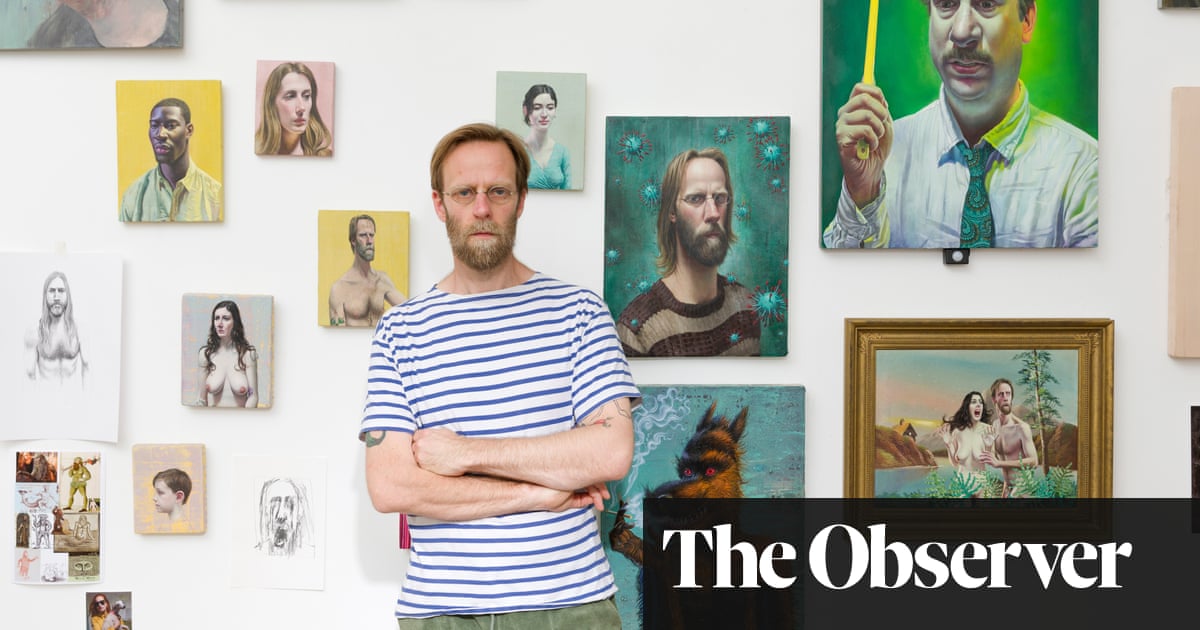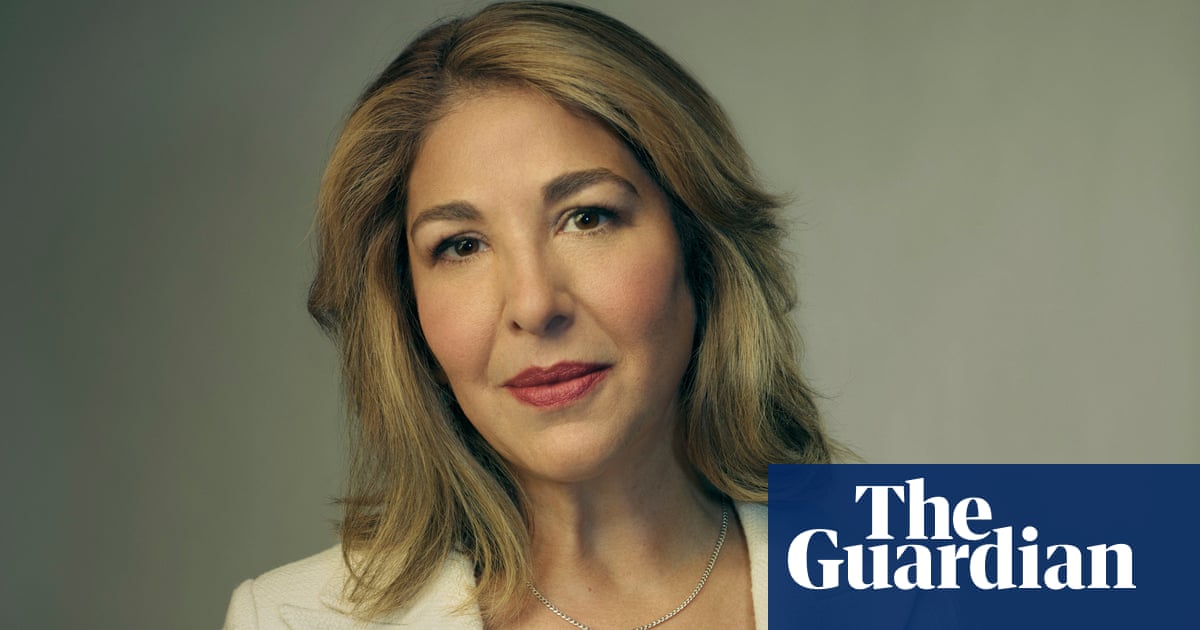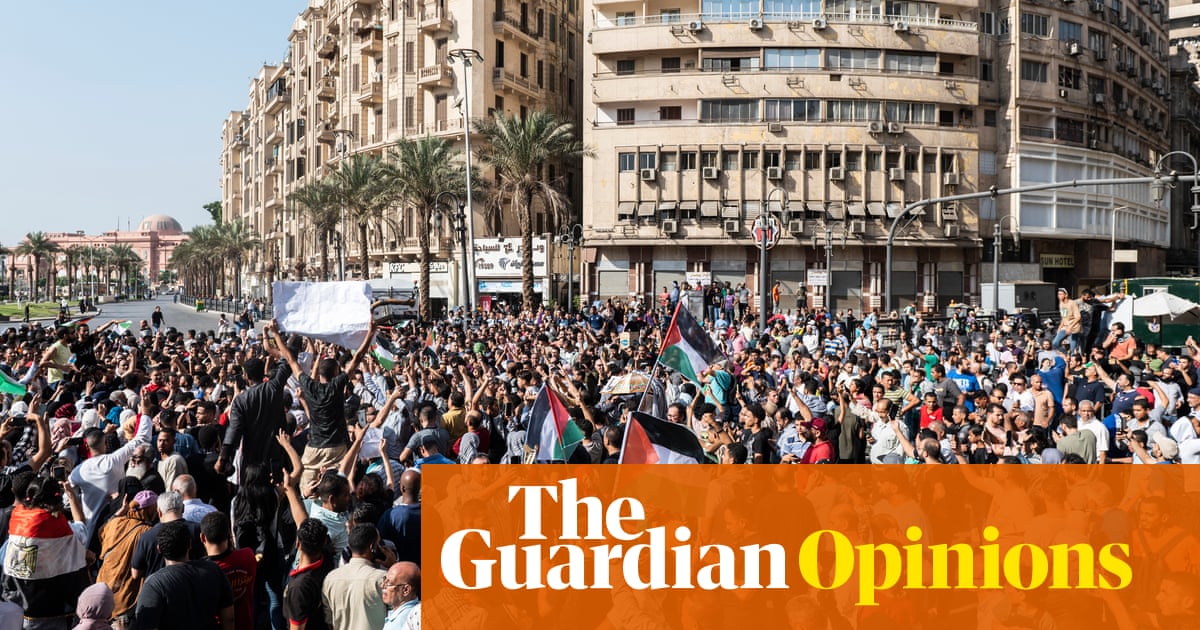
Anne-Marie Duff is extremely precise. Ask her a question, and she will take great lengths to make sure her delivery is spot on, pausing for epochs to get a phrase exactly right. Even though she’s famously shy, the beam of her concentrated attention makes our conversation in a central London hotel feel intimate – despite taking place in one of those artificial environments where actors gather looking sleek and shoot-ready. Sure, all actors have to inhabit the moment, but not many do that in an interview. Then again, she does have plenty to concentrate on: we’re here to talk about Bad Sisters, the new Sharon Horgan drama – specifically, why it’s so strikingly good.
“That’s Sharon’s writing, isn’t it?” Duff says. “She’s so brilliantly irreverent and funny, and cheeky. And, at the same time, full of emotional truth and compassion, and sometimes devastating heartbreak. All in a breath.” If she had her way, Duff would talk exclusively about other people and how great they are. We’re chatting while she’s glammed up for our photoshoot, giving off a doughty, that’s-the-job vibe, conveying that this level of groomed isn’t really her scene. Throughout, she manages to get at least 50 paeans (to the whole cast of Bad Sisters, Shameless, the rest of her CV, plus people doing things nothing to do with her – Steve McQueen, Lena Dunham, Suranne Jones) under the wire, however much I try to wrestle the topic back to her.
But I must insist on talking about her performance, which is the beating heart of the show: her character, Grace, is widowed at the start, and the story then goes backwards into the coercive abuse of her marriage – and the siblings who may have offed her husband. While the other four sisters have a tight, hilarious caper dynamic, Grace is isolated, “this diminished, reduced individual. We don’t even know who she really is. She’s just an opaque version of something. That was the tricky thing, desperately trying to make her feel like a real woman. It’s like she’s underwater. Where’s the fifth sister? She’s down there, beneath the waves.”
Anne-Marie Duff is extremely precise. Ask her a question, and she will take great lengths to make sure her delivery is spot on, pausing for epochs to get a phrase exactly right. Even though she’s famously shy, the beam of her concentrated attention makes our conversation in a central London hotel feel intimate – despite taking place in one of those artificial environments where actors gather looking sleek and shoot-ready. Sure, all actors have to inhabit the moment, but not many do that in an interview. Then again, she does have plenty to concentrate on: we’re here to talk about Bad Sisters, the new Sharon Horgan drama – specifically, why it’s so strikingly good.
“That’s Sharon’s writing, isn’t it?” Duff says. “She’s so brilliantly irreverent and funny, and cheeky. And, at the same time, full of emotional truth and compassion, and sometimes devastating heartbreak. All in a breath.” If she had her way, Duff would talk exclusively about other people and how great they are. We’re chatting while she’s glammed up for our photoshoot, giving off a doughty, that’s-the-job vibe, conveying that this level of groomed isn’t really her scene. Throughout, she manages to get at least 50 paeans (to the whole cast of Bad Sisters, Shameless, the rest of her CV, plus people doing things nothing to do with her – Steve McQueen, Lena Dunham, Suranne Jones) under the wire, however much I try to wrestle the topic back to her.
But I must insist on talking about her performance, which is the beating heart of the show: her character, Grace, is widowed at the start, and the story then goes backwards into the coercive abuse of her marriage – and the siblings who may have offed her husband. While the other four sisters have a tight, hilarious caper dynamic, Grace is isolated, “this diminished, reduced individual. We don’t even know who she really is. She’s just an opaque version of something. That was the tricky thing, desperately trying to make her feel like a real woman. It’s like she’s underwater. Where’s the fifth sister? She’s down there, beneath the waves.”
Domestic abuse has been a longstanding cause for Duff since 2006, when she played a woman escaping a violent relationship in Born Equal, directed by Dominic Savage. “I had been in touch with Women’s Aid and visited refuges at that time. I’d spoken to women who had been in violent scenarios, but also very coercive scenarios. It was fascinating talking to women about shame – how one of the prison bars is that you can’t admit you’ve married someone who treats you that way. Because then who are you?”
Bad Sisters is plainly not the first show to dramatise the topic, but the scenario – four sisters very close, one set apart, her isolation ever more intense – somehow gives it a power and palpability I’ve never seen before. It looks like it was no picnic to film, either, because the others get all the laughs. “I felt very isolated at times, actually, on the shoot,” Duff says. “I would go ‘Hi girls’ as they went in to do a scene without me. It was perfect in a way, because that’s how coercion works. Socially, it wasn’t fantastic. In terms of being a storyteller, it was great.”
It sounds like hell, but storytelling is way more important to Duff than socialising, and fiction more bearable than fact. “You’re inside of a character and you’re being told what to say and there’s relief to that. The unpredictability and uncertainty of the real world is terrifying. If you’re in a play, you know where you are. Even if you’re going to die, you know you’re going to die.”
The show is set in Ireland, and though Duff, 51, was born and grew up in London, both her parents are Irish. Her accent is pitch-perfect and she is proud of her dual nationality, flexing her EU passport and insisting her son has a Celtic sense of humour. She trained at the Drama Centre London, which closed down in 2020. Students used to nickname it the Trauma Centre, because everyone was so horrible. There, they told her she could forget being a lead because she was too much of a runt. “It was like an abusive relationship – you could be thrown out at any time, you could do a show and be told it was the worst thing they’d ever seen. You were always saying: ‘Please love me, please love me.’ Which then made the outside world seem much easier. Everyone was suddenly so supportive.”
But the wider culture has changed, too. “Training used to have this principle of ‘destroy to create’. Youth was a state of masochism: ‘I’ll do whatever it takes to make me a great artist.’ Now, young people will say: ‘I’ll only do this emotional scene so many times, I need to protect myself.’” She’s not calling young actors snowflakes; it’s way more complex than that, the uneasy power dynamics of the creative industries crisscrossing the unspoken impact of class.
“I come from a very working-class background,” says Duff, “so I’ve always had that little feeling of ‘Who should an actor be? Who deserves to be one?’” Nevertheless, “it used to be that if you wanted something badly enough and worked hard enough, you’d be able to find it somehow. But now it feels that, for a lot of very working-class young people, there’s a lack of belonging inside things.” She describes this dense irony – that norms have changed for the better, but access has changed for the worse – so there’s “a reactionary narrative that young people are all so entitled and full of self-belief. For a lot of disenfranchised people, that is bullshit.”
She feels the same about the #MeToo movement, which seems to be making great strides in stamping out misogyny, but “we both know if Trump hadn’t groped and Harvey [Weinstein] wasn’t on his decline, #MeToo wouldn’t have happened. There were things that conspired to allow that to happen. So yes, lots of things have changed. But then look at what’s just happened across the Atlantic [the overturning of Roe v Wade]. It’s teeter-totter time. It feels very flammable.”
Advertisement
Duff graduated from drama school in 1994 on a Friday, and was in rehearsals for a stage show on the Monday. She has been working nonstop, more or less – “a few blocks of unemployment but mostly by choice. Having a baby, whatever” – ever since. So you couldn’t call Shameless, in 2004, a big break, since she’d already been working for a decade, on stage in London and on screen mainly in Ireland. Plus, it came after The Magdalene Sisters, a stunning film about the notorious Catholic laundries in the 60s, and “that felt like the point my life changed”, Duff says, “because I’d done something on screen that was so important and so valued.”
Shameless was a terrific show; huge (“It hit the zeitgeist”) and “it was a sweet spot in as much as I was at the beginning, and the beginning is always delicious. Because you can paint whatever fucking panorama you want. It’s like the beginning of a love affair. So in that way, it was glorious. I was at the start of the meal.” (Technically it was also the beginning of a literal love affair, since she married her co-star James McAvoy; their son was born in 2010, and they divorced in 2016.)
It turbocharged her recognition, which she didn’t care about at all, and put her in a new league for roles. Her next was as Elizabeth I in the BBC’s The Virgin Queen (eat that, Trauma Centre – it’s definitely the lead). She remembers wryly: “There was an article in Vogue asking: ‘Why are they letting working-class people play royal family members?’ I kid you not. Ray Winstone had not long before played Henry VIII. It was really ‘Get off my land’.”
She has always come across as a good-politics person, without – shy of an anti-violence against women campaign in 2007 – saying anything very political. “From a personal point of view, it would be so that it doesn’t influence the work you’re asked to do. Because if you define yourself as something, then people can’t lose you in something else. In terms of public opinion, I know people find it quite annoying when actors start aligning themselves politically. But not in Ireland, of course, where theatre is a very political beast. Here, you’re an entertainer. You’re a player. That’s all you’re here for. You’re paid for that. Shut up and do your thing.”
For the first time, while filming Bad Sisters, she thought she might like to direct. “But it would be a play – directing on film is all about the team, you’re much more of a captain of a ship. When you’re in a rehearsal room, it’s all about people communicating with each other, and that is the language that I’m fluent in. But I hate the thought that one day everyone would hate me. This happens to directors – it has to.” It would be wonderful to see her direct: it feels as if she has a lot to say that “a player” can’t. But sure, some people would hate it.












